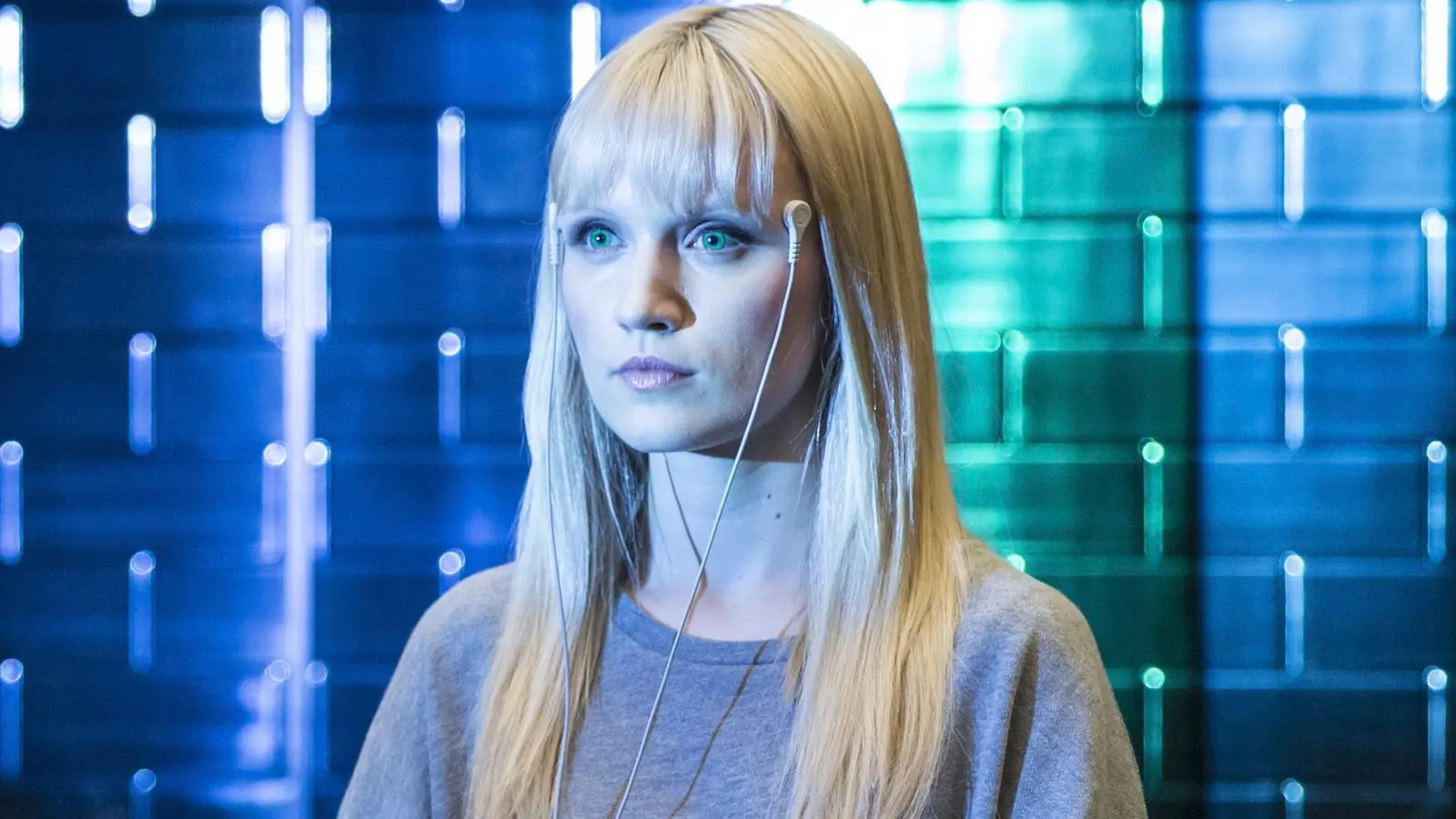
Sci-fi TV shows have never had a bad decade. From the 1950s’ black-and-white space adventures to the ambitious epics of the 2020s, the genre has always thrived on television. Each era delivered defining hits that left their mark, from campy cult classics to prestige dramas that elevated science fiction to mainstream cultural dominance.
For fans, this is a gift that keeps on giving. However, for many shows themselves, it’s been a curse. Giants like Star Trek: The Original Series, Battlestar Galactica, and The Expanse didn’t just dominate screens – they defined expectations. Countless other ambitious sci-fi series ended up forgotten, kept out of the mainstream by the enormous shadows cast by these landmark franchises.
However, obscurity doesn’t make a show skippable. On the contrary, these hidden gems prove sci-fi TV shows can be just as inventive, daring, and emotionally gripping as the genre’s titans. They boast everything from brilliant worldbuilding to daring concepts and unforgettable characters. Each one deserves rediscovery by fans, and each one earns its place as a must-watch sci-fi show.
Zoo (2015-2017)
A Pulpy And Thrilling Sci-Fi Series Where Animals Fight Back
Zoo is one of the strangest sci-fi TV shows to air on a network in recent years, and that’s exactly what makes it worth watching. Based on James Patterson’s novel, the series follows Jackson Oz (James Wolk) as he investigates a worldwide phenomenon where animals begin coordinating to take humanity down.
The premise may sound absurd, but Zoo leans into its pulpy energy with confidence. It’s a blend of eco-thriller and sci-fi apocalypse, exploring everything from genetic mutations to collapsing ecosystems. Fans of speculative fiction will find its “what if nature turned on us?” hook far more clever than it first appears, with each season upping the stakes in inventive ways.
Sadly, Zoo never shook its reputation as a guilty-pleasure show, often dismissed as too silly to be taken seriously. However, for fans willing to embrace its high-concept chaos, it’s a fast-paced, addictive series with a surprisingly strong emotional core.
Blake’s 7 (1978-1981)
A Gritty Space Opera That Challenged Heroic Storytelling
Long before Firefly turned space rogues into antiheroes, the British sci-fi show Blake’s 7 pioneered the idea with cynical brilliance. Created by Doctor Who writer Terry Nation, the series follows Roj Blake (Gareth Thomas), a political dissident who leads a ragtag group of criminals against the totalitarian Terran Federation.
Unlike most space operas of its era, Blake’s 7 rarely offered hope or optimism. Its heroes were flawed, self-serving, and often at odds with one another, making it one of the most morally complex sci-fi TV shows of the late 1970s. Avon (Paul Darrow), in particular, became an icon for his ruthless pragmatism and dry wit.
Though hugely popular in Britain at the time, the show never reached the same global audience as Star Trek or Battlestar Galactica. Today, it’s rarely remembered outside hardcore genre circles. Yet its influence on later, darker sci-fi storytelling is undeniable, making it a must-watch for fans curious about the roots of space opera’s grittier side.
Lost In Space (2018-2020)
A Modern Reimagining That Mixed Spectacle With Heartfelt Drama
Netflix’s Lost in Space reboot didn’t just update the 1960s classic – it completely redefined it for modern audiences. The Robinson family’s fight for survival after crash-landing on an alien planet was infused with blockbuster visuals, ambitious sci-fi concepts, and emotional storytelling that balanced family drama with cosmic wonder.
Molly Parker’s performance as Maureen Robinson grounded the series with intelligence and warmth, while Parker Posey’s gender-flipped Dr. Smith brought a deliciously manipulative edge. The visual effects rivaled those of many theatrical films, with alien worlds and environments that made the series feel like a big-budget event each week.
Despite its strengths, Lost in Space ended after just three seasons and quickly faded from pop culture memory. Overshadowed by Netflix juggernauts like Stranger Things, it never fully got its due. For those who missed it, though, it remains a polished and heartfelt gem that deserves far more recognition than it received.
Future Man (2017-2019)
A Hilarious And Subversive Sci-Fi Adventure
Future Man is one of the most gleefully irreverent sci-fi TV shows of the past decade. Produced by Seth Rogen and Evan Goldberg, the series stars Josh Hutcherson as Josh Futturman, a janitor-turned-reluctant hero after beating an impossible video game that turns out to be a recruitment tool from the future.
What follows is a wild mash-up of time travel tropes, pop culture parodies, and fourth-wall-breaking absurdity. Characters like the fierce Tiger (Eliza Coupe) and the deadpan Wolf (Derek Wilson) provide plenty of action and comedy, while the show cleverly riffs on everything from The Terminator to The Last Starfighter.
Unfortunately, its over-the-top humor meant it never found a wide audience, appealing more to cult viewers than mainstream ones. However, for fans of meta sci-fi with a comedic twist, Future Man is an endlessly inventive ride that’s as funny as it is thrilling.
Killjoys (2015-2019)
A Stylish Space Bounty Hunter Saga With Heart
Killjoys offered a refreshing spin on bounty hunter storytelling. Set in the Quad, a star system on the brink of political collapse, the series follows Dutch (Hannah John-Kamen) and brothers John (Aaron Ashmore) and D’avin (Luke Macfarlane) as “killjoys,” neutral agents tasked with capturing targets across shifting alliances and looming wars.
The show stood out for its sharp writing and dynamic cast chemistry. Dutch, in particular, became a fan favorite for her blend of lethal skill and layered vulnerability. Over five seasons, the series expanded its mythology into an intricate tale of interstellar conflict while never losing sight of its found-family heart.
Killjoys arrived to near-instant critical praise and soon grew a dedicated fanbase, but never achieved the same recognition as The Expanse, which launched around the same time. Today, it remains a buried gem in the crowded space opera landscape, but it’s easily one of the most rewarding shows for fans of character-driven sci-fi action.
Caprica (2009-2010)
A Bold Prequel That Explored The Origins Of Humanity’s Downfall
As a spin-off of Battlestar Galactica, Caprica had enormous expectations, but its ambition was very different from its predecessor. Instead of focusing on interstellar war, it dove into the rise of artificial intelligence and virtual reality decades before humanity’s fall to the Cylons.
Anchored by Eric Stoltz as Daniel Graystone, a tech genius whose grief-driven experiments lead to the creation of the first Cylons, Caprica offered a rich mix of corporate intrigue, religious conflict, and ethical dilemmas. It wasn’t about space battles but about the moral compromises that make them inevitable.
Viewers expecting another high-octane war drama were disappointed, and the show struggled with ratings before ending after one season. In retrospect though, Caprica was ahead of its time, exploring themes that modern sci-fi continues to wrestle with. It’s a thoughtful, layered watch that deserves reevaluation as a key piece of the Battlestar Galactica mythos.
Tales From The Loop (2020)
A Hauntingly Beautiful Anthology About Humanity And Technology
Based on the surreal artwork of Simon Stålenhag, Tales from the Loop is unlike any other sci-fi series. Each episode presents a quiet, contemplative story set in a small town built around “the Loop,” a mysterious machine that bends reality in strange and often melancholy ways.
The show doesn’t rely on action or spectacle but instead on mood, atmosphere, and character. Performances from Rebecca Hall as Loretta and Jonathan Pryce as Russ ground the anthology’s deeply human stories, which explore themes of love, loss, and memory through the lens of impossible technology.
Unfortunately, its slower, meditative pace turned many casual viewers away, and Amazon canceled it after just one season. Yet for fans who appreciate emotional, artful science fiction, Tales from the Loop is one of the most visually stunning and thematically rich hidden gems of recent years.
Humans (2015-2018)
A Gripping Exploration Of Artificial Intelligence And Morality
Humans delivered one of the smartest takes on artificial intelligence in recent sci-fi TV shows. Set in a world where humanoid robots called synths are part of daily life, the series examines what happens when these machines begin to gain consciousness and demand rights.
The standout performances came from Gemma Chan as synth Anita/Mia and Emily Berrington as the complex Niska, both of whom gave incredible depth to the question of what it means to be human. The show balanced gripping family drama with philosophical storytelling, creating a compelling mix of emotional and intellectual engagement.
While it earned critical acclaim, Humans never achieved the global cultural footprint of Westworld, which covered similar themes at the same time. As a result, it slipped into obscurity after its third season. For fans of AI-focused science fiction, however, it remains an absolute essential.
V (1983)
An Iconic Alien Invasion Story That Deserves More Credit
Before Independence Day and countless other invasion stories, there was V. This ambitious sci-fi miniseries (later expanded into a show) centered on the arrival of seemingly friendly alien “Visitors” who are revealed to be reptilian conquerors in disguise.
Jane Badler’s iconic performance as Diana, the ruthless Visitor commander, gave the series one of sci-fi’s most memorable villains. V mixed pulpy alien spectacle with sharp political allegory, drawing parallels to fascism and authoritarianism in ways that gave its story real dramatic weight.
Although a hit at the time, V has since been overshadowed by later alien-invasion narratives and remembered more for its campier moments than its substance. However, beneath the dated special effects lies a daring and influential series that deserves revisiting as a trailblazer of televised sci-fi storytelling.
Counterpart (2017-2019)
A Mind-Bending Spy Thriller With A Sci-Fi Twist
Counterpart blended espionage and science fiction in brilliant fashion. J.K. Simmons stars as Howard Silk, a mild-mannered bureaucrat who discovers his agency guards a gateway to a parallel Earth – and that his double is a hardened spy from the other side.
The series worked as both a taut Cold War-style thriller and a meditation on identity, fate, and morality. Simmons’ dual performance is extraordinary, showing two radically different versions of the same man with subtle shifts in mannerisms and tone. The worldbuilding is equally meticulous, with the alternate Earth diverging from ours in fascinating and chilling ways.



